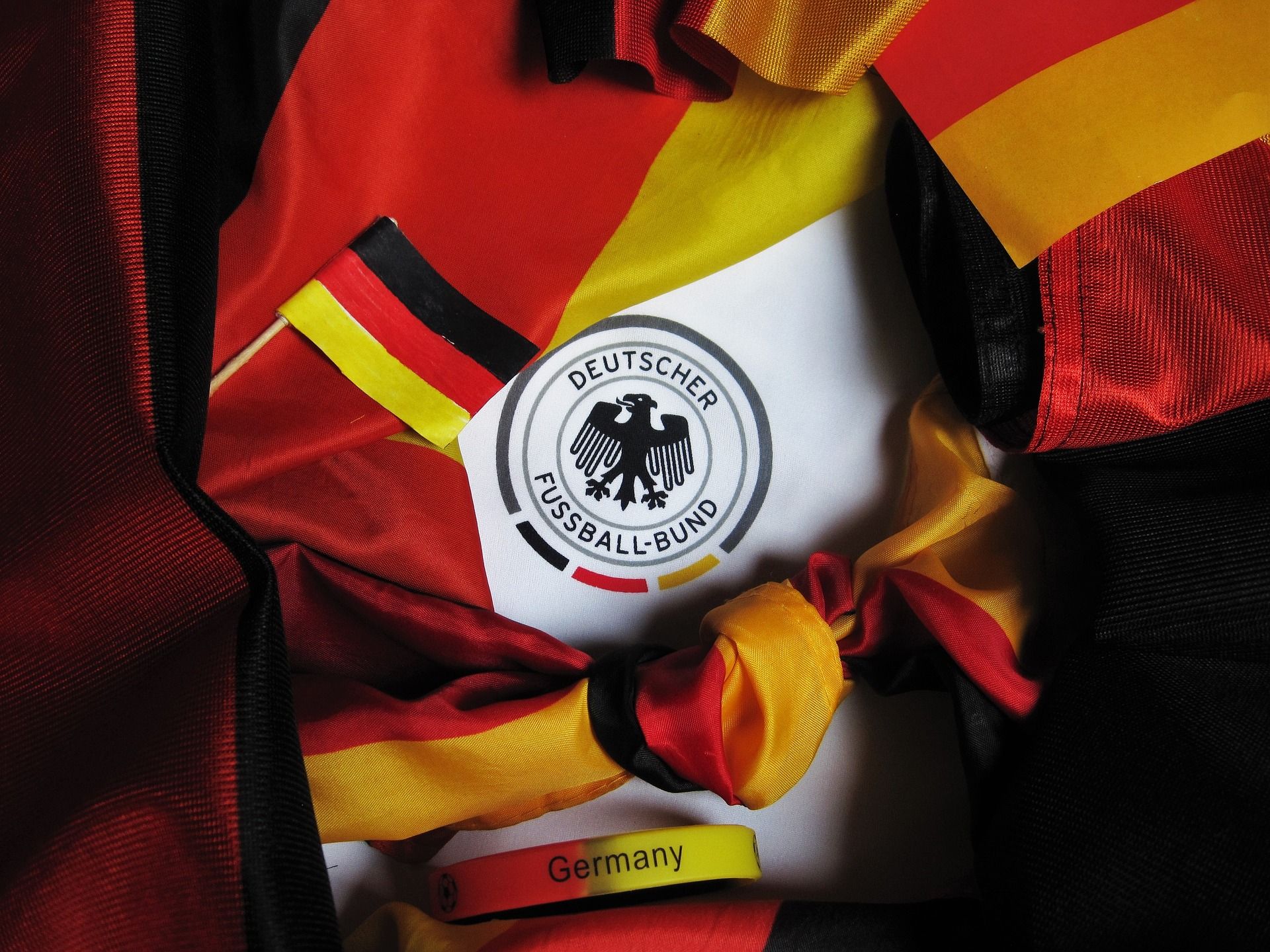Support NewsLeaf.com from as little as £1 by donating via PayPal. Click here to donate.
“In 2004, German football was down. We took decisive steps,” said manager Joachim Löw following the Germany’s victory in the 2014 world cup. “We [had] to invest more in the education so we are technically better”.
In Euro 2004 Germany – just two years on from a run to the world cup final – the Germans were drawn in group D, alongside the Netherlands, Czech Republic and Latvia. A Netherlands squad boasting legends from 1-11; with Wesley Sneijder, Ruud van Nistelrooy, Edwin van der Sar, Clarence Seedorf, Patrick Kluivert and Arjen Robben amongst the ranks, were always going to be a tough match, but Germany should still have breezed past Latvia and the Czech Republic to book a place into the quarter final.
In the opening game, they secured a respectable 1-1 draw against the Netherlands, before failing to get past a Latvia side that were competing in their first ever major tournament; managing just a 0-0 draw. They went into the game against the Czech Republic needing a win to qualify, they couldn’t manage it; succumbing to a 2-1 defeat and failing to make it out of the group stage.
In response, Germany overhauled their entire production line. ‘Das reboot’, ripped up the academy system, the training of coaches, the national team facilities; all of it built again from a fresh and innovative blueprint. The scouting network was first, aiming to hoover up the talent that had previously gone under the radar.
One of the major developments was to throw young players out onto the senior pitches at an early stage. Young German stars such as Mario Götze, Julian Draxler and Toni Kroos became first team regulars at some of the biggest clubs in Germany whilst in their teens.
Also read:
- BTS will be performing on ABC’s Disney Holiday Sing along
- Muslims in the UK provide free food to those in need
- BTS Shows Us How Online Concerts Are Done!
The overhaul of German coaching saw the emergence of some of the best managers in world football, with Jurgen Klopp and Thomas Tuchel amongst the most successful managerial exports of the world. Much of this came at the direction of the manager at the very top, Joachim Löw, who was appointed Germany boss in 2006.
Germany reaped the rewards of this, both in the domestic and international game, with a German team featuring in the final of the champions league in all but one year between 2009 and 2013, and having an all-German final in 2013. Just the year after this success, they lifted the gold-plated Jules Rimet trophy, winning the 2014 world cup final, with the winner scored by Mario Götze in a 1-0 win over Argentina.
In 10 years, they went from failing at the group stage, to champions of the world. Yet, just six years after their success, Germany are back in the doldrums. After a strong Euro 2016 performance that saw them reach the semi-finals, they were once again out in the groups at the 2018 world cup, succumbing to Mexico and South Korea, to finish third in what was a relatively easy group.
In the UEFA nations league they suffered defeats to the Netherlands and France, before bouncing back to top their EURO 2020 (now 2021) group and headed in as one of the favourites. Despite the positives, the Germany that had dominated world football in the early 2010s were gone, another poor showing in the 2020 nations league culminated in a 6-0 defeat to Spain last week, one of their most humiliating results in decades.
There is no clear reason for the decline that Germany have suffered in the last six years, except that perhaps ‘das reboot’ was too successful. After their equally humiliating defeats in the 2010 world cup and 2012 euros, England launched their own version of ‘das reboot’ which has seen them produce some of the most exciting talent in world football, many of whom have learned their trade in the German game.
Where German players were getting a chance at a young age in the Bundesliga, many have followed, sending their best young talent to the league for first team football. England’s Jadon Sancho, as well as North American exports such as Alphonso Davies, Tyler Adams and Christian Pulisic all went to the Bundesliga to learn their trade. Where Gotze, Kroos and Draxler were unique in getting minutes at a young age in a top league, players from across the world are now heading into their 20s with thousands of first team minutes already under their belt.
This has not just been seen through foreign players in the Bundesliga, but domestic leagues giving youngsters a break much earlier. In the Premier League, Phil Foden, Mason Greenwood and Callum Hudson-Odoi are just a few of the young players gaining substantial minutes at the biggest clubs in the country, whilst La Liga has seen Ansu Fati, Mikel Oyarzabal and Ferran Torres all gain substantial first team minutes before their 20th birthday. The advantage of experience that German footballers had, no longer exists.
But perhaps a much bigger problem is the style of football they innovated and exported, has now been adopted elsewhere, and in the case of Joachim Löw, his football is now out of date and ineffective. Whilst Germany have produced many fantastic and innovative coaches in the last decade, Joachim Löw is no longer one of them. He introduced functional pressing football to the international game, that was at one time a huge step forwards, but is not the standard.
Jurgen Klopp, Thomas Tuchel and Ralph Hassenhüttl have all taken their pressing football abroad, whilst Julian Nagelsmann and Hansi Flick have further developed the style of play to render Joachim Löw out of date. This style of play has also been adopted by others, with the likes of Mauricio Pochettino and Spain’s new head coach, Luis Enrique, all subscribers to the type of football that was developed in Germany.
They may still have fantastic players and managers, but they are no longer as innovative and different, and their manager is now holding them back. Once a pioneer of football, he is now somewhat of a dinosaur in a sport that moves on more rapidly than any other.
If Germany are to return to the top, he needs to either modernise, or leave his post. His penchant for defensive fullbacks no longer flies at the top of the game. He won the 2014 world cup by playing four centre backs, and although the France side that won the 2018 world cup did the same, they were still heavily attacking and contributed to play further up the pitch.
The squad is deficient in a number of areas, there is a lack of strong full backs within the Germany squad, but a strong manager could counter this through changing their system, utilising attacking wing backs which they have in abundance.
The appointment of a manager such as Julian Nagelsmann who would likely utilise a 3-5-2 or 3-4-3 formation, with three centre backs and attacking full backs would allow for a more functional team and give the width to their game that has been lacking under Löw in recent years.
Germany rebounded by starting again and innovating, then everyone else caught up. As the ideas of the manager became mainstream, he started to fall behind other innovators and the nation lost its edge. To get back to the top of the world, they don’t necessarily need a complete overhaul, but they do need to keep up with their own innovations.
_____________________________________________________________________________

Calum Paton is a History and Politics graduate from the University of Warwick and he is currently studying a MA at the University of Law. His writing predominantly focuses on American and British politics. Twitter: @Paton_Calum




